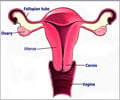Since times immemorial, it has been known that women experience and interact with their natural surroundings in ways that differ from men

Guest Editors Britain Scott, PhD, from the University of St. Thomas (St. Paul, MN) and Lisa Lynch, PhD, from Antioch University (Seattle, WA) present a collection of articles that encompass observations and theories on how female gender, motherhood, human nature, and gender-based societal norms influence a woman's self-perception and behavior. Topics focus on what women may gain from interacting with their surroundings on a sensory level and how they may benefit from nature-based therapies.
In the article "Babes and the Woods: Women's Objectification and the Feminine Beauty Ideal as Ecological Hazards," Dr. Scott explains how cultural norms that promote a view of women as sex objects have led women to become preoccupied with, and generally critical of, their bodies. This feeling among women that they fall short of the feminine beauty ideal has a negative impact on their attitude toward, and ability to connect with, the environment.
Kari Hennigan, PhD, from Institute of Transpersonal Psychology, suggests that women who spend time in natural settings and interact with the environment are more likely to have a better body image and to distance themselves from societal definitions of beauty. Susan Logsdon-Conradsen, PhD and Sarah Allred, PhD, from Berry College (Mount Berry, GA), describe the concept of environmental mother-activism, which is based on the supposition that a woman's mothering instincts extends to a desire to protect and preserve the environmental for her children. In the article "Motherhood and Environmental Activism: A Developmental Framework," the authors propose that motherhood stimulates activist behavior, with environmental activism being one example of this transformation. Gwenaël Salha, PhD, from Pacifica Graduate Institute (Carpinteria, CA), draws on the 4000-year-old Sumerian myth of Inanna to explore the promise of ecotherapy. In "The Heroine in the Underworld: An Ecopsychological Perspective on the Myth of Inanna," the author describes how the theme of people's perceived connections with the Earth and their local community, drawn from the myth, can be used as a model for rebuilding relationships and restoring positive communication.
"I was honored and pleased to collaborate with Lisa Lynch and Britain Scott on this special issue of Ecopsychology. In her own way, each guest editor embodies the role of ecopsychology scholar / educator and their selections highlight the promise of this exciting interdisciplinary perspective" says Editor-in-Chief Thomas Joseph Doherty, PsyD, Graduate School of Counseling, Lewis & Clark College (Portland, OR).
Advertisement









